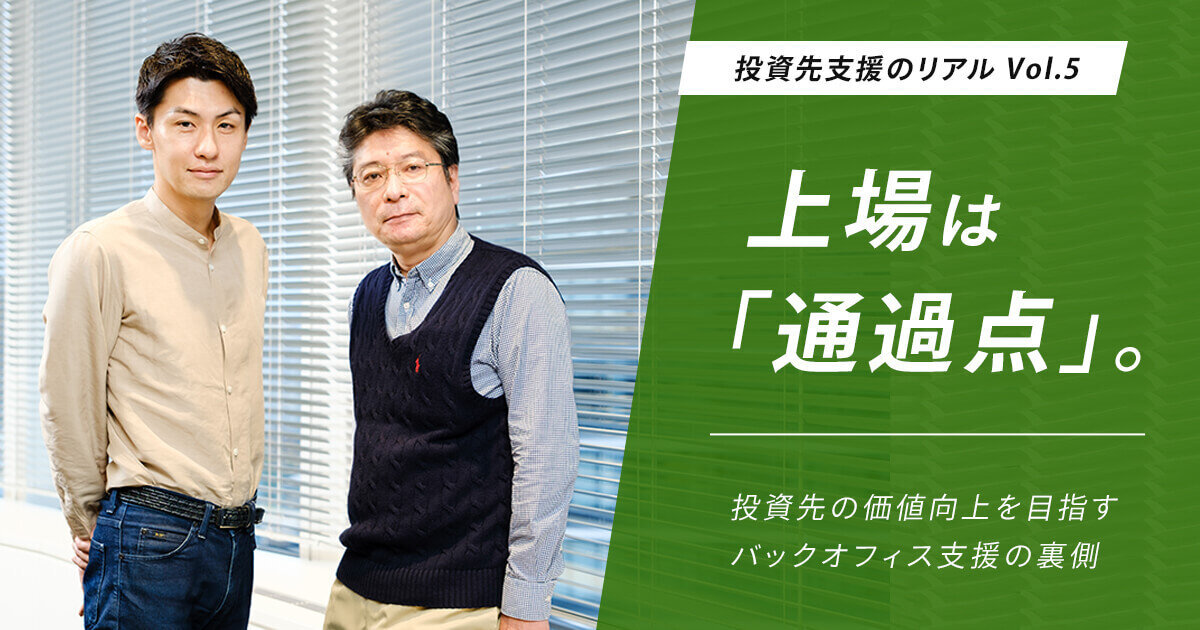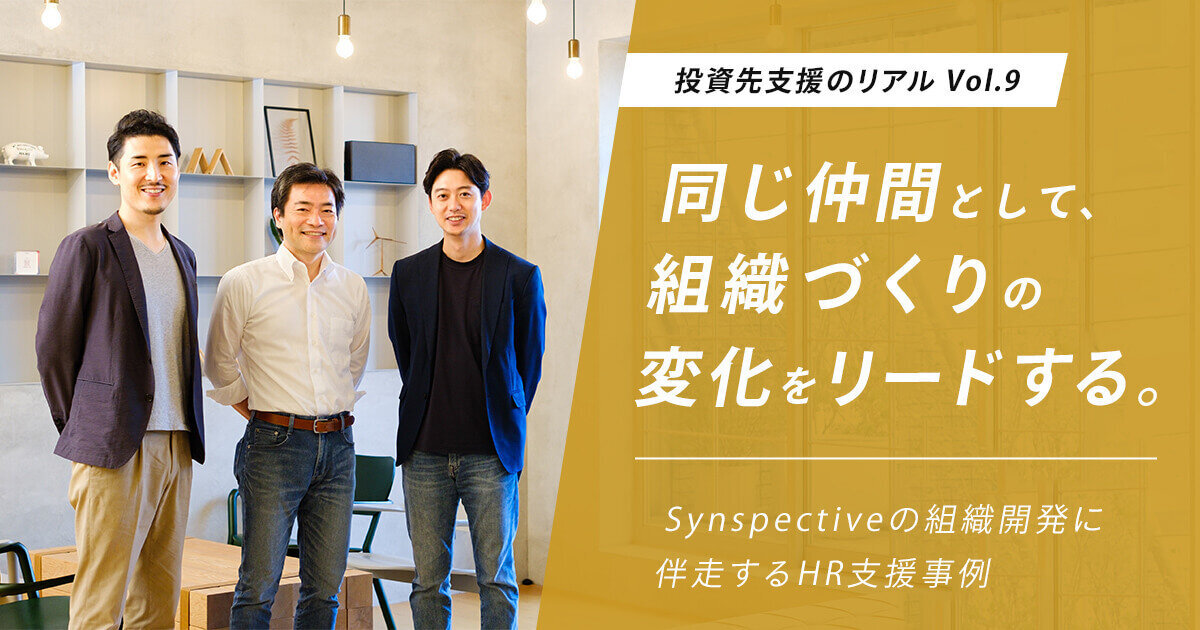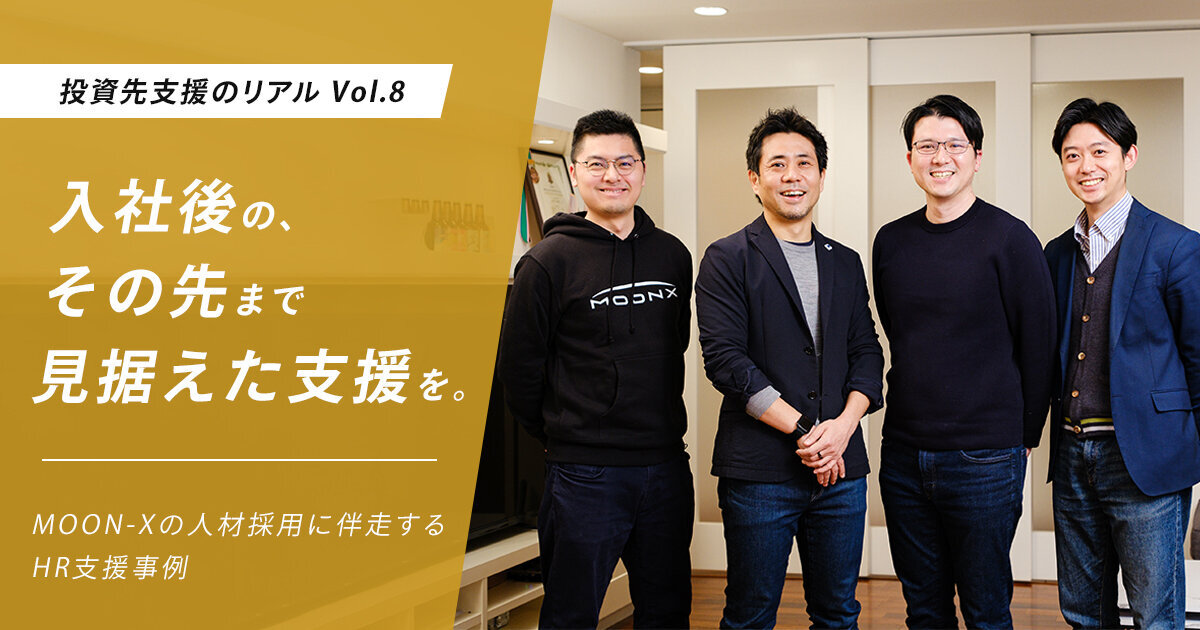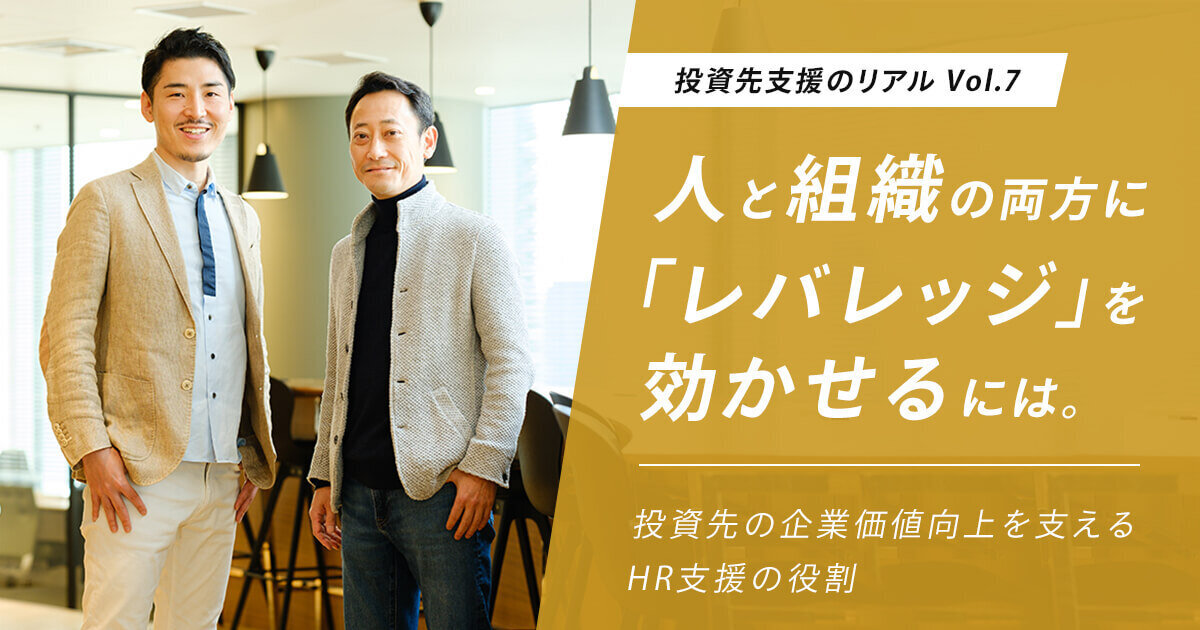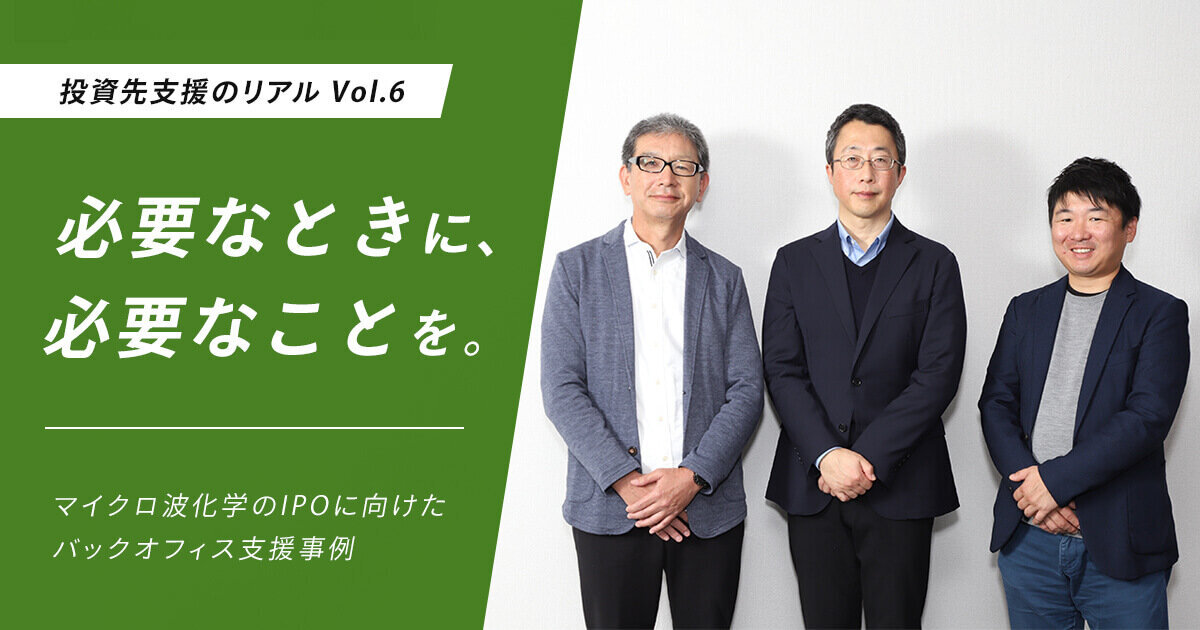An administrative system is essential for a growing organization.
Normally, people tend to focus on the glamorous front stage, but if the foundation supporting that stage is weak, even if there is a technology that will revolutionize the industry, it will end up not being able to demonstrate its effect. It's not uncommon.
In addition, startups tend to put business growth first, so it is difficult to strengthen the management system.
This time, Hidetomo Katano and Hiroki Setoyama from the support team will talk about JAFCO's back-office support, including its functions and stance.
【profile】
Business Development Division JAFCO Group Co., Ltd. Eichi Katano
After working for an accounting firm for 6 years, he joined JAFCO in 1991 after obtaining a tax accountant qualification. He has consistently focused on IPO preparation support for investee companies. He also supports the Investment Division, such as planning capital policies and exit schemes.
Business Development Division JAFCO Group Co., Ltd. Hiroki Setoyama
Joined the JAFCO Group in 2020. In his previous job, Ernst & Young ShinNihon LLC, he was engaged in not only audit work but also IPO quality control work in the IPO management department. In addition, he has experience of being seconded to the listing examination department of the Japan Exchange Regulation. Currently, in order to improve the corporate value of investees, he provides back office construction support, listing preparation support, and Investment Division support. Certified public accountant, IPO-related business support PT member of the Tokyo Association of Japanese Institute of Certified Public Accountants
The back office is the "foundation" for corporate growth. From building an administrative system to preparing for IPO, etc.
A strong administrative system is important for growth
─First of all, please give us an overview of the support provided by the back office support team.
Katano In general, back office support is often thought of as "preparing for listing", but in the first place, regardless of whether the company is listed or not, the back office is essential for the growth of the company. We work together with investees to prepare listing application documents and build governance and internal control systems, and at its essence, we are "building a foundation for the growth of investee companies."
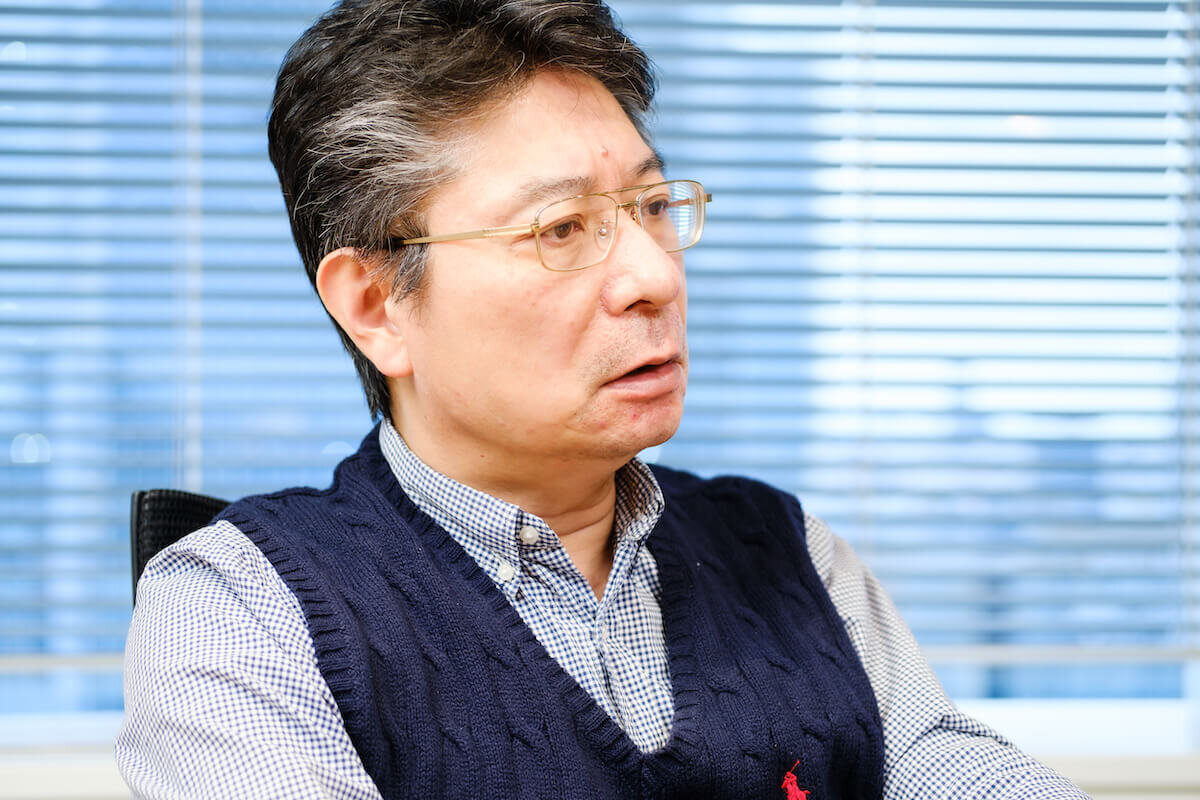
Setoyama Our's support can be broadly divided into two parts: "back office setup" during the seed/early stage and "listing preparation" during the middle/later stage.
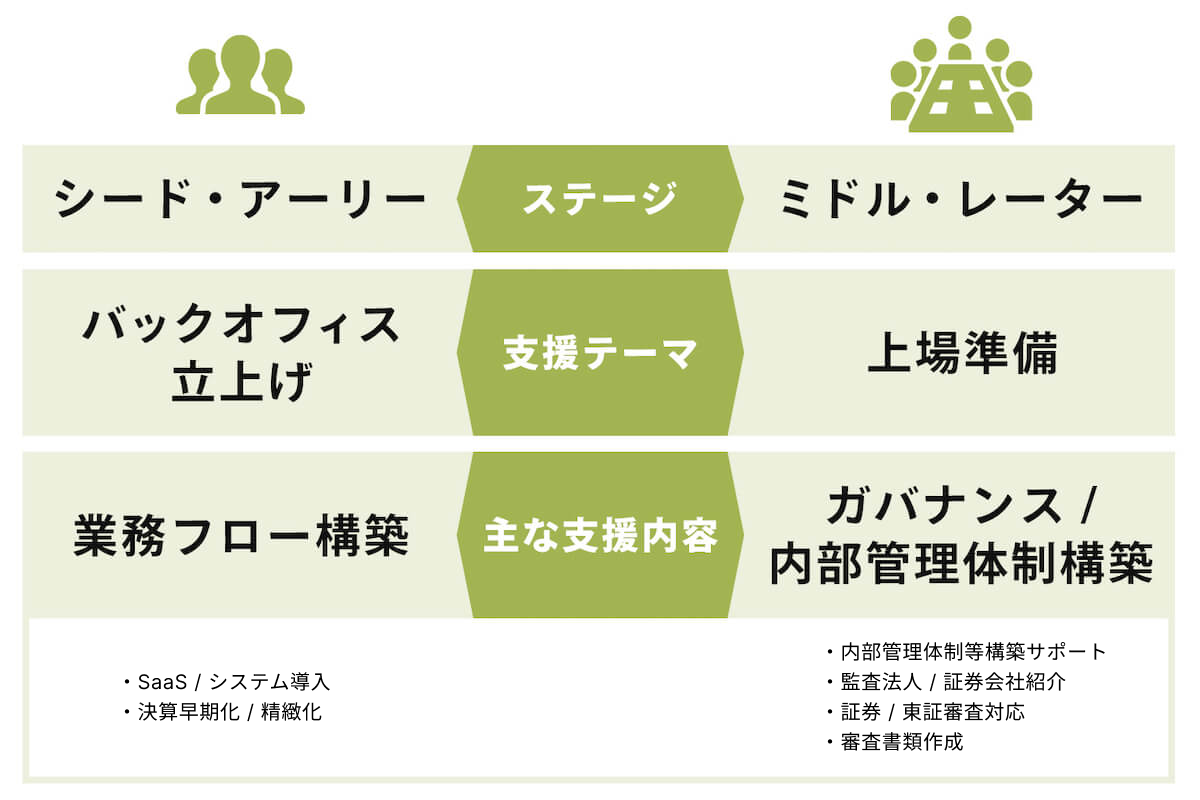
Listing is just a passing point. Supporting what is necessary to increase corporate value
─Please tell us about the content of each type of support.
Setoyama First of all, when the back office is set up, we provide support for building a "system". Specifically, we support the construction of operational flows and the construction of managerial accounting aimed at speeding up monthly calculations so that management decisions can be made in a timely manner.
In this phase, it is necessary to advance the business while the business base and the earnings base have not yet been established. We support the creation of the foundation (= system) to enable decision-making on the direction to take based on a timely understanding of the current business situation and other factors.
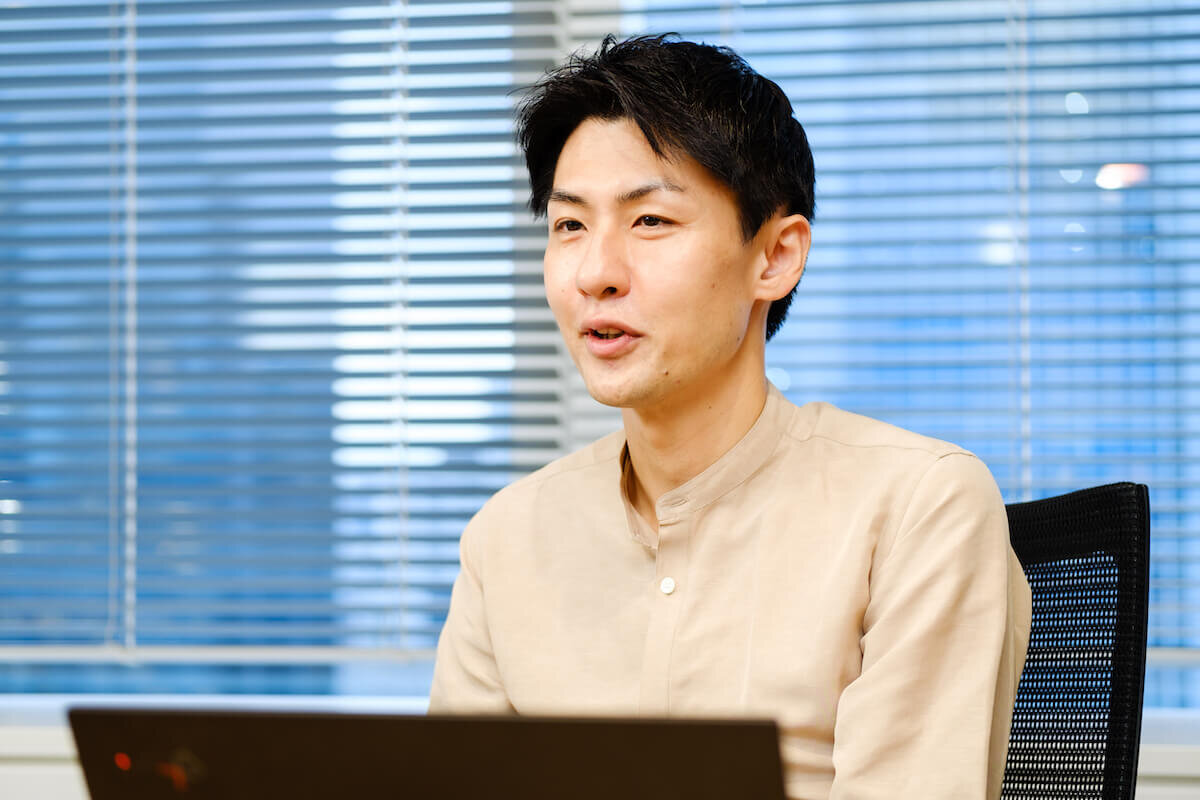
─Next, please tell us about the specific support you provide for preparations for listing.
Setoyama Listing preparation is mainly divided into stages up to listing, and we provide support according to each stage.
For example, in the N-3 period, in preparation for the conclusion of an audit contract with an audit firm, we provide support for building an internal control system required by the audit firm before contracting, or provide support for the short review of the audit firm.
After the N-2 period, when preparations are in full swing, we will support the establishment of governance and internal control systems to transform a private company into a public company, and support the IPO of investees.
In the TSE due diligence phase from the N-1 term onwards, we provide support for TSE examinations. From the N-1 period onwards, the investee companies are in a phase where they need to take care of themselves, so basically, our stance is to provide support as needed.
Katano In the past, I was also in charge of the first interview for CFO recruitment in cooperation with the accounting and human resources departments of investee companies and JAFCO's HR support team.
─What do you keep in mind when supporting investee companies?
Setoyama When building a governance/internal control system, we do not provide textbook advice, etc., but are conscious of providing support for building an "effective" governance/internal control system according to the situation of the investee company.
Ultimately, the risks that can arise in doing business vary depending on the investee company. Because there is a possibility that it will become a rice cake. If the governance and internal management system is not developed in accordance with the situation of the investee company, the result may be "a castle in the air."
─How often and how deeply do you engage with investee companies?
Katano For example, if there are not many consultation matters yet, we will hold a regular meeting once a month to monitor the situation, and once we are in the phase where preparations for listing can begin in earnest, we will check the progress every week and provide support for lagging areas.
Depending on the situation in which the investee company is placed, the support required varies, so we are involved in a way that matches the problems and needs.
Setoyama In our position, we are not in a position to provide support even after listing, so it is necessary for the investee company to operate its own business and system, and our support is premised on realizing that. It is true that it is quite difficult to overcome the hurdle of an IPO, which is a transit point, so we provide support according to the situation of the investee.
JAFCO's back-office support has continued to "evolve" in response to changes in the world
Organized a team specializing in back office based on the track record of continuous support since our founding
─Please tell us about the history of back-office support at JAFCO.
Katano The current system is based on the back office support that JAFCO had been providing since around 1990 as part of preparations for listing. After that, our service was spun off as a subsidiary, providing listing support and personnel placement/ dispatch for various companies, but reintegrated in 2010.
Along with making a fresh start specializing in support for investees, we combined the functions of sales support, investee research, and HR, which were originally separate functions, to become "BD (Business Development)".
─What kind of changes did you see as a result of bringing investee support in-house?
Katano Because of the format of "providing support for a fee" until then, we mainly dealt with what was decided in the contract. However, as the investees aim to go public, unexpected events and unexpected accidents are inevitable. By moving in-house, it has become possible to provide in-depth support, such as being able to respond flexibly when a company is in trouble and be consulted with freely.
The "form" of the support may have changed, but we believe that JAFCO's strength compared to other VCs is that we continue to provide back-office support with a dedicated team.
The investment policy has changed, but the support style has remained unchanged: "Respect for entrepreneurs"
─ Speaking of changes, JAFCO has changed its investment strategy from "diversified investment" to "selective and concentrated investment." Did that influence the way you provided back-office support?
Katano No, the basic idea of "respect for entrepreneurs" has not changed. For example, when you have a disagreement with an entrepreneur, instead of forcing your ideas on them from a superior perspective, such as "this should be" or "this is the only thing you can do", we talk about what his/her goal is and what he/she needs. It is important to have mutual trust while talking.
Setoyama Rather, I believe that the shift to "selective and concentrated investment" is increasing the density of our relationship with each of our portfolio companies.
Katano Currently, JAFCO is investing mainly in seed and early stage startups. Startups have a high priority for business growth, and there is also a current situation where it is difficult to strengthen the administrative system. That's why I think we can support the construction of a strong administrative system through "collaboration" with our back-office support team.
─If you can build an administrative system together, it will lead to the development of an environment where entrepreneurs can concentrate on their businesses.
Setoyama That's right. Entrepreneurs can concentrate on their businesses by utilizing the knowledge of back-office support that JAFCO has cultivated so far As a result, the business will grow, the IPO will be realized, and the business will grow further with the IPO as a passing point. We want our investees to go through this process.
Becoming an organization that can support a wide range of investees with experienced collaborators
Return JAFCO's accumulated knowledge to investees
─Please tell us about the "future" of back-office support based on your progress so far.
Setoyama Currently, we are providing support mainly to a small number of companies in the period immediately before listing, but we are working to enhance our support system so that we can provide in-depth support to even more investment destinations in the future.
In particular, the current situation is that there is a shortage of resources at the seed and early stages. We would like to support the production.
Katano In the first place, back-office operations tend to be subject to individualized knowledge and tend to be inefficient.
JAFCO has experience in supporting various investee companies, and we know more than 4,000 companies (of which more than 1,000 are listed). Of course, not all of them went public smoothly, and there were various challenges. That's why I would like to contribute to human resource development from the perspective of "OJT" that makes use of my knowledge of both what went well and what didn't.
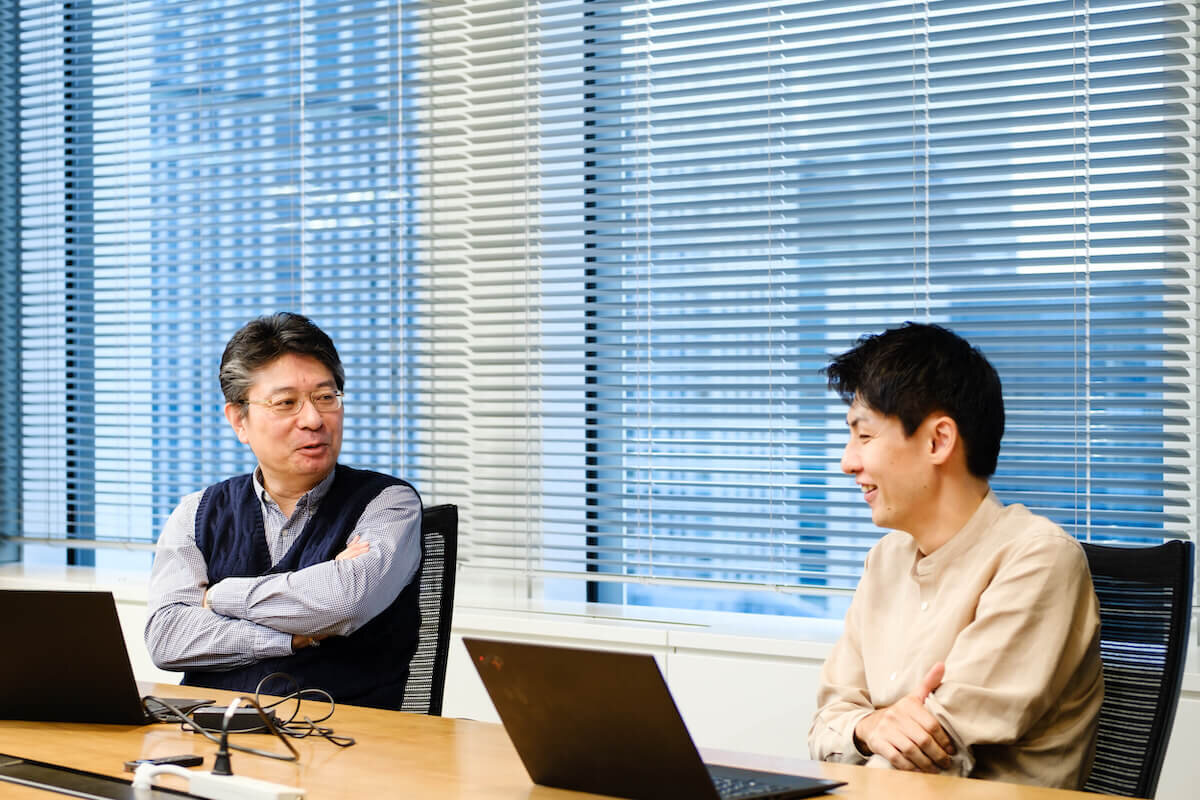
─Thank you. Finally, please give a message to entrepreneurs who are considering raising funds for JAFCO.
Setoyama Building a back-office system is essential in order to gain a firm grasp of the current situation of the business and to establish a business and earnings base. However, it is not necessary to build an excessive system, and it is important to build a system that matches the phase and situation of the company with the awareness of progressing the business. I hope I can tell you, let's build it together.
Katano JAFCO considers investment to be the "starting point". Our stance is to do whatever is necessary for corporate growth, so if you have even the slightest problem or concern, we would like you to use JAFCO.

